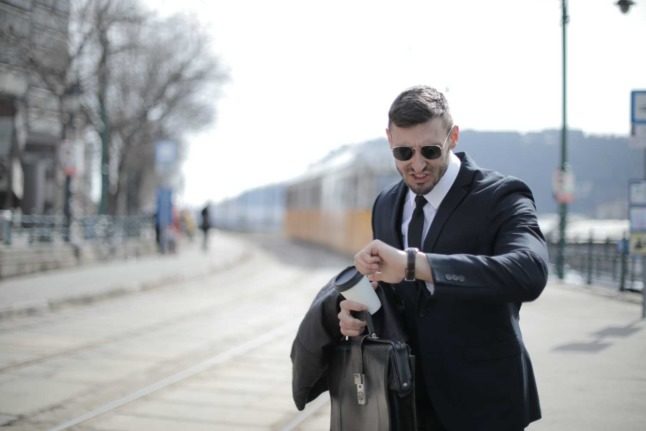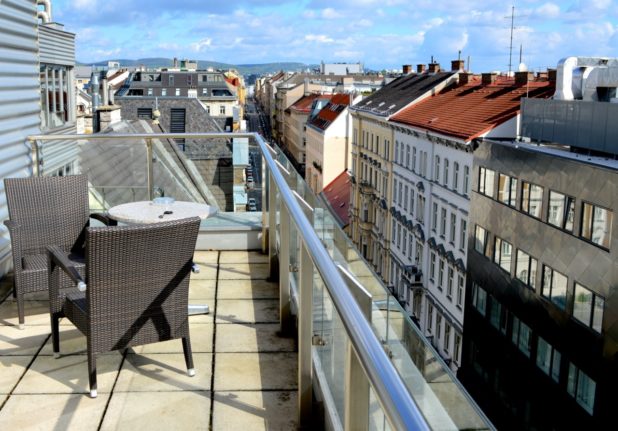Adjusting to life in a new country takes time – even more so when navigating unwritten rules of how to act in social and professional situations.
But learning how to live like a local in Austria will not only make it a more pleasant experience, it will also show that you fit in and respect the rules.
To help you further understand Austrian culture, here are five unwritten rules that explain life in Austria.
Always say hello – at least in the countryside
Austrians have a reputation for being direct in their communication, but politeness is also highly valued.
A prime example is the unwritten rule of saying hello to people – even if you don’t know them.
This applies more in the countryside than in the cities but it’s worth being aware of to avoid making a social faux pas.
According to a Kurier article, failure to greet others will even have you labelled as unfriendly, arrogant or badly educated.
READ MORE: Nine things you might be surprised are actually Austrian
So, if someone is walking towards you, you walk into a bakery (for example) or you see neighbours on the street, then a greeting is expected.
It could be a simple nod of the head, but in most cases it will be “Servus”, “Griaß di” or even “Hallo”.
But don’t try it in a city like Vienna. Saying hello to strangers will just result in funny looks.

Always bring food or drink to a social gathering
If invited to a barbecue or dinner party at someone’s house, always take a drink or something to contribute to the meal.
For example, if your host is cooking, offer to bring a salad or a dessert.
If they are taking care of the food then offer to bring a nice bottle of wine or a selection of beers.

And if they are hosting a barbecue, always take your own meat and expect a wide selection of salads and bread that other guests will also bring and share with everyone else.
Not only is this polite, but it will stop other people from talking about you because you violated the unwritten rule.
Don’t expect polite queues at ski lift stations
While Austrian society can be polite in many ways, queueing at ski lift stations in the Alps is a different story.
In fact, it’s a free-for-all and it’s something that both tourists and international residents in Austria have experienced.
REVEALED: What do Austrians think about foreigners?
An Austrian in Tyrol, who asked to remain anonymous, summed it up when he told The Local: “Don’t be civilised and politely queue up at the ski lifts – just push in.”
So, when going skiing in Austria, leave your manners at home, be prepared for others to cut in front of you and get ready to push to the front of the queue.

Lateness is not appreciated
People in Austria are generally punctual, like to be on time and expect others to do the same – just like in neighbouring countries Germany and Switzerland.
The unwritten rule applies to both work and social situations, including going out to dinner at a restaurant.
READER QUESTION: Is it legal to drink in public in Austria?
This means if you’re running late it’s polite to call the host and let them know. Likewise if you have a reservation at a restaurant.
However, there is still a limit on how much lateness can be tolerated, with 15 minutes typically the maximum delay before people become annoyed.
Always carry cash
Cash is king in Austria.

It always has been and it probably always will be, with a pre-pandemic study showing that 83 per cent of Austrians preferred paying with cash.
Customers can even expect a grumpy roll of the eyes when trying to pay with cash in some places because it’s so deeply ingrained in the culture.
READ MORE: Why is cash so important to Austrians?
This attitude towards cash is perfectly reflected in the Austrian saying “Nur Bares ist Wahres” (only cash is true) and there are three reasons for this – freedom, anonymity and control.
Austrians like to have the freedom of not relying on a bank, the anonymity to spend money on whatever they like and control over spending.
For international residents from card-favouring countries like the UK, Ireland and most of Scandinavia, the best way to deal with this is to just get used to carrying cash.



 Please whitelist us to continue reading.
Please whitelist us to continue reading.
Member comments